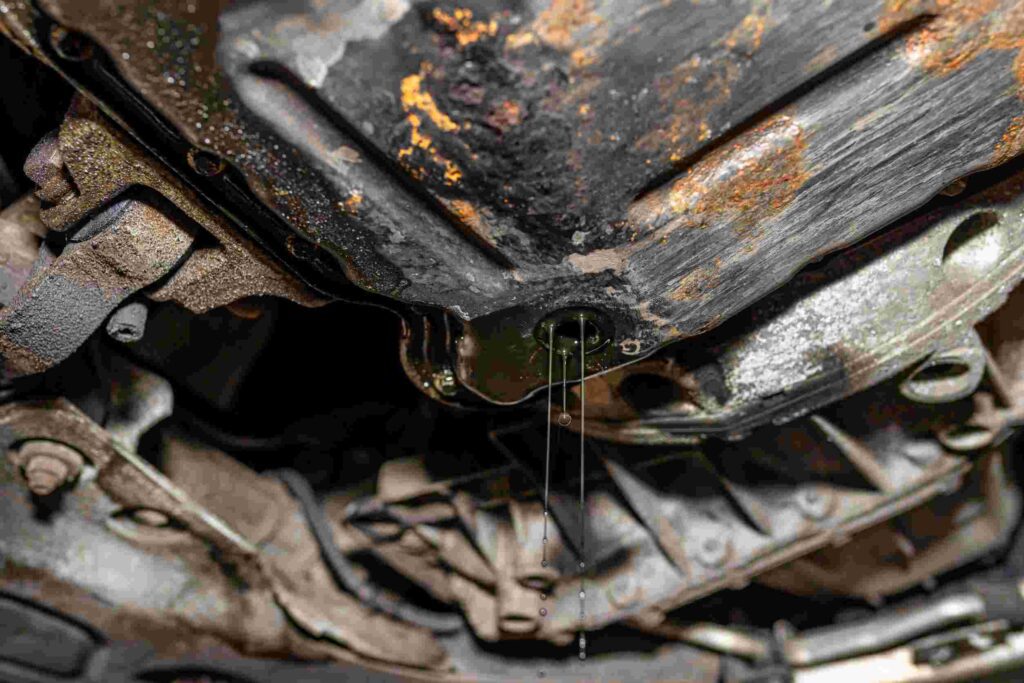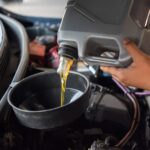The importance of changing the engine oil to maintain engine health is well known. But what if your car is lacking in the acceleration department when an engine oil change is due, are the two linked?
Yes, needing an oil change can affect acceleration alongside many other factors. However, one thing to be aware of is this is rarely in cars that stick to manufacturers’ recommended oil change schedules, even when due it’s due soon.
Service schedules tend to change the oil well before there could be any consequences or risks to the engine. Usually, cars that experience issues such as reduced engine performance when they need an oil change are because the oil hasn’t been changed for a long time!
How Does a Car Feel When It Needs an Oil Change?
Unless you completely ignore the oil change service schedule until the oil is changed, you will rarely feel differences. However, if the oil change is long overdue, you can expect to feel a few issues with the car, which include:
- Engine noise – Engine oil lubricates moving components. If the oil is old, contaminated, or low, it will no longer provide adequate lubrication, so you may hear knocking and tapping noises or the engine will just be slightly louder than usual.
- Sluggish performance – If the car feels sluggish or less responsive than usual, it could be due to dirty or degraded oil. Fresh oil helps to lubricate the engine and its moving parts, ensuring smooth operation. The qualities in the oil break down over time which can impact the engine’s performance
- Vibrations – Vibrations would only appear if the oil is dangerously low or severely overfilled, which can be one of the reasons an oil change is needed. Without providing lubrication, damage can occur to rotating components such as engine bearings. If they become too dry, you may hear humming noises and feel the engine vibrating.
Why Needing an Oil Change Can Affect Acceleration
When a car needs an oil change, the engine oil becomes dirty and old, which means it breaks down(degraded). This all means it loses its ability to lubricate moving parts effectively. Fresh, clean oil reduces friction between these components and ensures smooth operation.
When the oil degrades, it becomes thicker and less able to flow smoothly through the engine. This can create additional friction and resistance within the engine, causing it to work harder than necessary.
In addition, degraded oil can also contribute to the formation of sludge or deposits within the engine. These deposits can clog vital passages in the oil pump, cooler, oil filter, or valve train. Any restriction to oil flow can reduce the engine’s overall performance, including acceleration.
Lastly, old or degraded oil can affect the engine’s piston rings, which are responsible for sealing the piston in the cylinder during combustion. When the oil becomes dirty or too thin, it may bypass these rings and enter the combustion chamber. This can result in oil burning during combustion, leading to excess exhaust smoke, decreased power output, and reduced acceleration.
Other Signs the Engine Oil Needs Replacing
It’s important to know while there are signs the oil may need replacing it’s rare that you will get to a point that you notice issues. Especially if you stick to regular manufacture service schedules. However if you have ignored them for whatever reason, you may experience some of the below issues:
- Check engine light illuminated
- Oil light on
- Low oil pressure
- Overheating
- Burning smell from the engine
- Dirty or contaminated oil
- Low oil level
- Excess smoke from the exhaust
- Increased fuel consumption
- Clogged oil filter (not visible until removed)
- Leaking oil
- Mixed oil grades
- Past the vehicle manufacturers oil change schedule
It’s important to note that these signs may vary depending on the specific vehicle and its condition.
Consequences of Not Changing Engine Oil
- Engine wear – Oil is crucial in lubricating the engine’s moving parts and reducing friction. Over time, oil breaks down and becomes less effective at lubricating engine components, such as pistons, cylinders, and bearings, which will cause them to wear prematurely.
- Reduced engine performance – Old and dirty oil can hinder the engine’s performance. It becomes less efficient at carrying away heat from the engine, which can result in overheating. If the engine begins to run hotter than usual, there will be a drop in engine performance, most noticeable as a reduction in the car’s acceleration; if the car overheating becomes significant, it will then be responsible for creating a misfiring engine.
- Increased risk of engine damage – When oil becomes contaminated with dirt, debris, or sludge, it loses its ability to clean and protect the engine effectively. Contaminants in the oil can clog oil lines, leading to restricted oil flow and potential engine damage. Additionally, degraded oil may fail to form a proper oil film between engine parts, causing increased friction and potentially resulting in overheating or seizing of components.
- Poor fuel efficiency – As the engine oil deteriorates, it can create more friction in the engine between moving components. Increased friction means the engine has to work harder to overcome resistance, decreasing fuel efficiency. Over time, neglecting oil changes can contribute to higher fuel consumption.
One last thing to consider is that every vehicle reacts differently to old unchanged oil. One car may not experience any issues because it already uses quite a thin oil (oil weight), and although its strengths have degraded, it won’t get much thinner. So providing the oil is still at the correct level, you could experience virtually no problems.

How Often Should You Change the Oil?
The frequency of oil changes depends on various factors, including the type of oil used, the car’s age, driving conditions, and the manufacturer’s recommendations.
Most vehicles today typically have recommended oil change intervals ranging from 5,000 to 10,000 miles (8,000 to 16,000 kilometers) or every 6 to 12 months, whichever comes first. However, it’s essential to consult your vehicle’s owner’s manual for the manufacturer’s specific recommendations, as they can vary depending on the make, model, and engine.
Also, newer vehicles often have oil life monitoring systems that analyze mileage, driving habits, and engine operating conditions to provide more accurate oil change recommendations. These systems use sensors and algorithms to determine when an oil change is due; they typically display an alert when it is coming up soon.
It’s worth noting that certain driving conditions may require more frequent oil changes. For example, suppose you frequently drive in severe conditions such as extreme temperatures, stop-and-go traffic, towing heavy loads, or driving in dusty environments. In that case, the oil may degrade quicker and need to be changed more frequently.
Final Thoughts
Although needing an oil change can affect the acceleration of a car if the oil is ancient and degraded has been covered. I strongly recommend that you read how many miles can you go over an oil change next; alongside this article, you will better understand how many miles can you go over an oil change next; alongside this article, you will get a better understanding of the importance of oil changes.










Thank you for explaining to us that once the engine oil becomes old and dirty, it loses its ability to lubricate the moving parts of the engine effectively since clean oil is needed to reduce friction and ensure a smooth operation. I plan to get an oil change for my car soon since I’ll be the one driving for our road trip with friends next week, so the vehicle must be in great condition before we leave. I’ll keep this in mind while I look for an auto service in East York to contact about the oil change I need for my car before our trip.